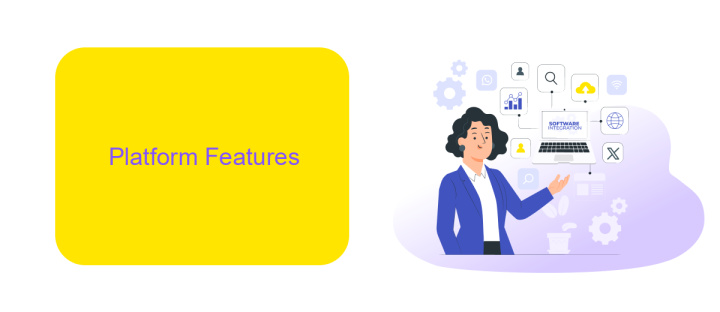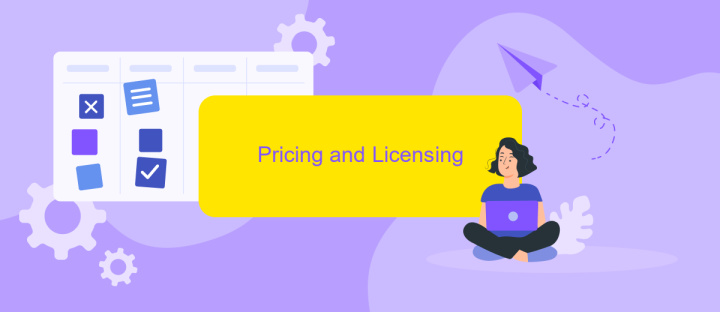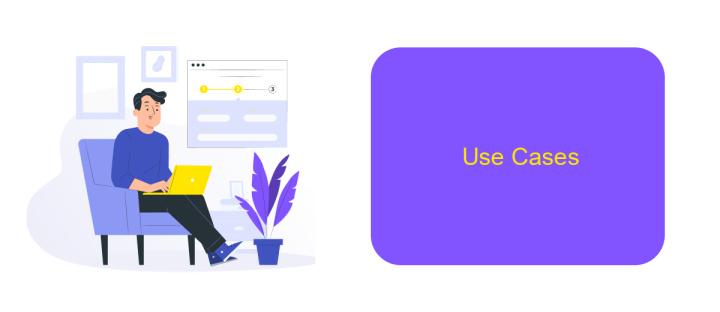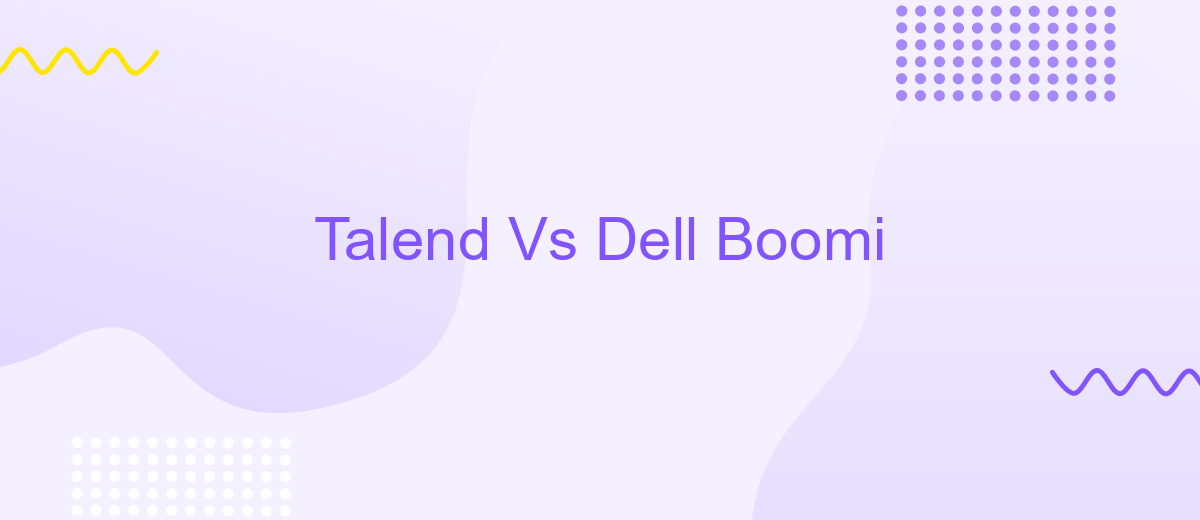Talend Vs Dell Boomi
When choosing an integration platform, businesses often find themselves comparing Talend and Dell Boomi. Both platforms offer robust solutions for data integration, cloud connectivity, and application management. This article delves into the key features, strengths, and potential drawbacks of each, helping you make an informed decision that aligns with your organization's needs and goals.
Introduction
In today's rapidly evolving digital landscape, businesses are increasingly relying on integration platforms to streamline their operations and improve efficiency. Two of the most popular integration solutions are Talend and Dell Boomi. Both platforms offer robust features to help organizations connect disparate systems, automate workflows, and manage data more effectively. However, choosing the right tool for your specific needs can be challenging.
- Talend: Known for its open-source model and extensive data integration capabilities.
- Dell Boomi: A cloud-native platform that excels in application integration and ease of use.
- ApiX-Drive: An emerging service that simplifies the integration process with its user-friendly interface and wide range of supported applications.
This article aims to provide a comprehensive comparison between Talend and Dell Boomi, highlighting their key features, strengths, and weaknesses. We will also explore how ApiX-Drive can complement these platforms by offering additional flexibility and simplicity in managing integrations. By the end of this article, you will have a clearer understanding of which integration solution is best suited for your business needs.
Platform Features

Talend offers a comprehensive suite of data integration and management tools designed to streamline complex data workflows. Its platform supports a wide array of data sources and formats, enabling seamless data migration, transformation, and synchronization. Talend's open-source foundation allows for extensive customization and flexibility, making it an ideal choice for businesses with unique data integration needs. Additionally, Talend provides robust data quality and governance features, ensuring that data remains accurate and compliant across the enterprise.
Dell Boomi, on the other hand, excels in cloud-based integration, offering a unified platform for connecting applications, data, and devices. Boomi's intuitive drag-and-drop interface simplifies the creation and management of integration processes, reducing the need for extensive coding knowledge. The platform's real-time data integration capabilities ensure timely and accurate data flow across systems. Moreover, Dell Boomi's extensive library of pre-built connectors and integration templates accelerates deployment times. For businesses looking to further enhance their integration capabilities, services like ApiX-Drive can be utilized to automate and streamline the integration process, providing additional flexibility and efficiency.
Pricing and Licensing

When evaluating Talend and Dell Boomi, pricing and licensing are crucial factors to consider. Both platforms offer flexible pricing models, but they cater to different business needs and budgets.
- Talend: Talend provides a subscription-based pricing model. It offers various editions, including a free open-source version and enterprise editions with more features and support. Talend's pricing scales with the number of users and data volume, making it suitable for both small businesses and large enterprises.
- Dell Boomi: Dell Boomi also follows a subscription-based model but is generally priced higher than Talend. Its pricing is based on the number of integrations, connections, and data volume. Dell Boomi offers several tiers, from basic to enterprise-level, catering to different integration needs.
Both Talend and Dell Boomi provide robust integration capabilities, but their pricing structures differ significantly. For businesses looking to streamline their integration processes, services like ApiX-Drive can offer additional support and customization, ensuring a seamless integration experience without breaking the bank.
Use Cases

When comparing Talend and Dell Boomi, it's essential to consider their use cases to understand which platform best suits your business needs. Both tools offer robust data integration capabilities, but they excel in different scenarios.
Talend is particularly strong in complex data transformation tasks and large-scale data integration projects. It is often used in environments where extensive data manipulation and custom coding are required. Talend's open-source nature also makes it a favorite among developers who need flexibility and control.
- Data Warehousing: Talend is ideal for building and maintaining data warehouses due to its powerful ETL capabilities.
- Big Data Integration: Talend supports big data platforms like Hadoop, making it suitable for large-scale data processing.
- Custom Data Solutions: Talend's flexibility allows for highly customized data integration solutions.
On the other hand, Dell Boomi shines in cloud-based integrations and is known for its ease of use and quick deployment. It is perfect for businesses looking to integrate various cloud applications with minimal coding. Services like ApiX-Drive can further streamline these integrations, offering a user-friendly interface for connecting different systems effortlessly.
Conclusion
In conclusion, both Talend and Dell Boomi offer robust integration solutions that cater to different business needs. Talend stands out with its open-source flexibility and extensive data transformation capabilities, making it a preferred choice for organizations that require deep customization and control over their data processes. On the other hand, Dell Boomi excels in providing a user-friendly, cloud-native platform that simplifies integration tasks, which is ideal for businesses looking for quick and efficient deployment.
When choosing between Talend and Dell Boomi, it's essential to consider the specific requirements of your business, such as the level of customization needed, the complexity of data workflows, and the desired speed of implementation. Additionally, integrating a service like ApiX-Drive can further streamline the process by offering a seamless connection between various applications and systems, enhancing the overall efficiency of your integration strategy. Ultimately, the right choice will depend on your unique business objectives and technical needs.


FAQ
What are the main differences between Talend and Dell Boomi?
Which platform is easier to use for non-technical users?
How do the pricing models of Talend and Dell Boomi compare?
Can both platforms handle real-time data integration?
What is a good service for implementing and configuring integrations on these platforms?
Time is the most valuable resource for business today. Almost half of it is wasted on routine tasks. Your employees are constantly forced to perform monotonous tasks that are difficult to classify as important and specialized. You can leave everything as it is by hiring additional employees, or you can automate most of the business processes using the ApiX-Drive online connector to get rid of unnecessary time and money expenses once and for all. The choice is yours!

